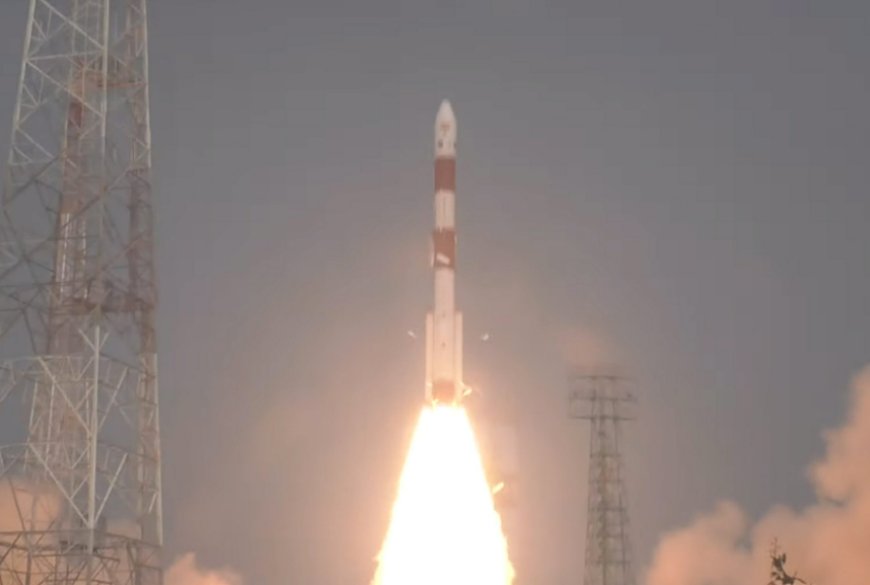ISRO Successfully Launches XPoSat: India's First X-Ray Polarimeter Satellite into Orbit
PSLV-C58 Mission, Astronomical Insights, Space Technology Advancements

The first-ever X-Ray Polarimeter satellite, which would provide various insights into astronomical objects like black holes, was successfully launched by ISRO on Monday.
Launched at the scheduled time of 9.10 am from the first launch pad here, ISRO's always dependable Polar Satellite Launch Vehicle (PSLV) successfully completed the C58 mission, putting the primary X-Ray Polarimeter satellite XPoSat into a 650 km Low Earth Orbit as planned.
The spaceport located approximately 135 km east of Chennai saw a large number of spectators descend, and as the 25-hour countdown came to an end, the 44.4-meter tall rocket lifted off majestically to thunderous applause.
The purpose of the X-ray Polarimeter Satellite (XPoSat) is to study the polarization of high-energy X-ray sources in orbit.
It is the first specifically designed scientific satellite from ISRO to conduct space-based polarization measurements of X-ray emission from celestial sources.
ISRO Chairman S Somanath greeted everyone with a happy new year as he left the Mission Control Center. Thus, on January 1, 2024, PSLV completed another mission that was successful. The primary satellite XPoSat is now in the desired orbit thanks to PSLV-C58." "From this point the orbit of PSLV 4th stage will be reduced to a lower orbit where the upper stage of PSLV which is described as POEM will carry out experiments with the onboard payloads and that will take some time," he said.
"Let me also announce the orbit that has been accomplished which is available through various routes, it shows excellent orbit and the deviations from the targeted orbit is hardly just 3km in circular orbit of 650 km and inclination is 001 degree which is one of the very excellent orbital condition and yet another announcement is that the solar panel of the satellite has been deployed successfully," Somanath, who is also the Secretary of the Space Department,
An essential diagnostic tool for analyzing the geometry and radiation mechanism of celestial sources is the X-ray polarisation.
The principal payload of XPoSat is XSPECT (X-ray Spectroscopy and Timing), constructed by the U R Rao Satellite Centre, Bengaluru, and POLIX (Polarimeter Instrument in X-Rays), designed by Raman Research Institute to measure polarimetry parameters. There are roughly five years in a mission.
"To be here to celebrate the great success of the 60th launch of PSLV makes me very happy," stated Jayakumar M, the mission director. "What makes this mission more interesting is the new technologies that are getting demonstrated in the POEM 3 experiment, we have the fuel cell, we have the silicon-based high energy battery, amateur radio satellite service...," he continued.
"More importantly, one of the payloads is a total women engineered satellite, this I think showcases the women empowerment in the field of science and technology and all the payloads in fact demonstrate the reforms that are currently in the Indian space sector," he continued.
The tremendous efforts put in by all members of the ISRO team and other stakeholders have made today's successful launch possible. Had it not been for the dedicated work of multiple teams from different ISRO centers, this mission would not have been feasible," he stated.
"I also thank IN-SPACe for acting as the nodal agency in identifying the payloads for POEM-3 experiment and for delivering the payloads adhering to our schedule," he said.
Except for the headline, this story has not been edited by Press Time staff and has been published from a syndicated feed.























































